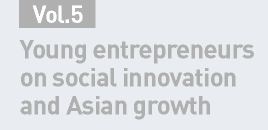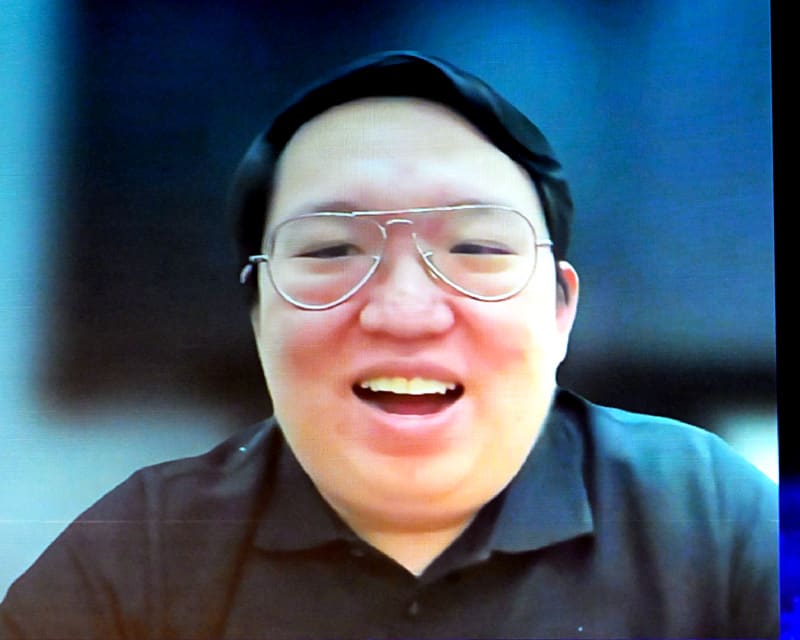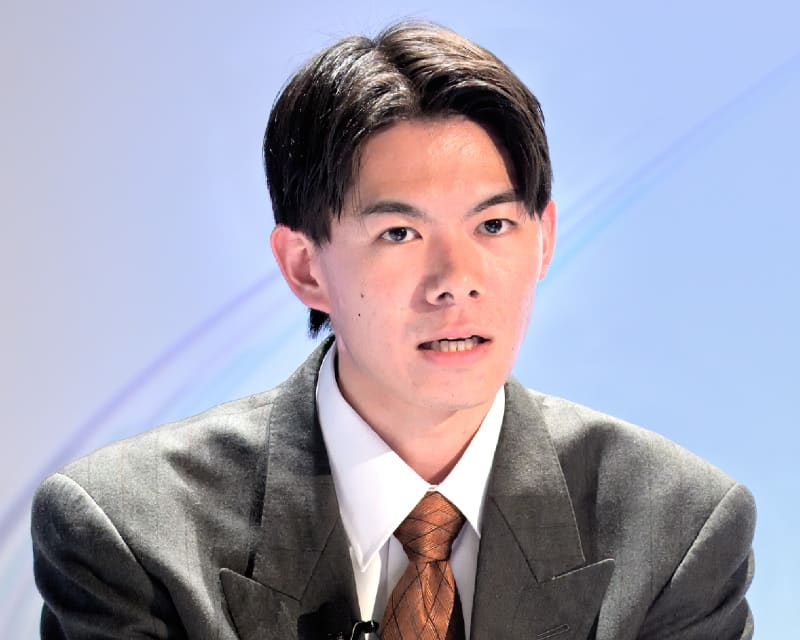Three entrepreneurs gathered on May 30, the second day of Nikkei Forum 30th Future of Asia, to discuss the socioeconomic role of Asian entrepreneurship and issues in fulfilling that role. On hand for the session as panelists were Kee Cheng Heng, the cofounder of the Singaporean company HelloHolo; Narayan Lal Gurjar, the founder and CEO of the Indo-Japanese company EF Polymer; and Shunsuke Inoue, the CEO of Japan Process Mining Technology. Moderating the session was Kimio Momose, a professor in Sophia University’s Graduate Program in Applied Data Science.
THE FUTURE OF ASIA
Four challenges
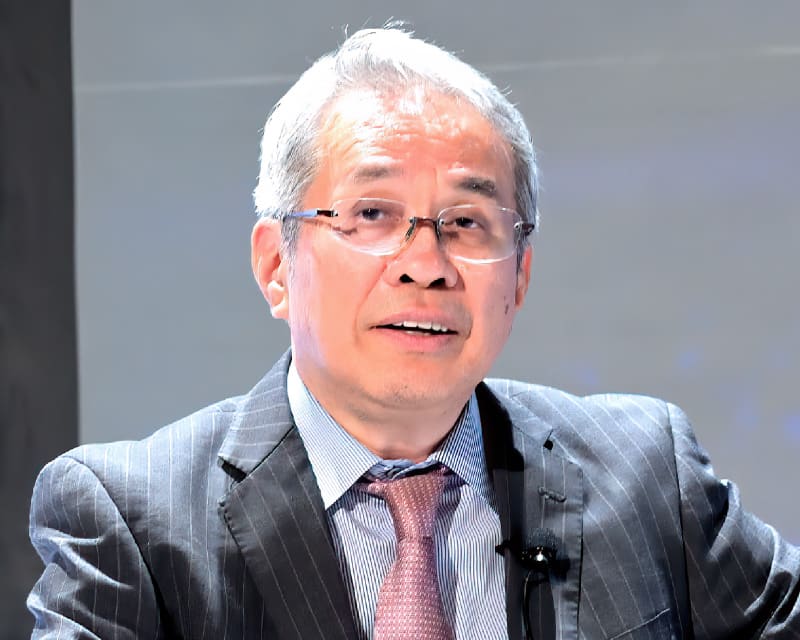
Kimio Momose
Professor by Special Appointment, Sophia University
“We will examine four challenges that Asian entrepreneurs confront,” explained Momose. “First, the challenge of entering new markets, namely in developing business within traditional and conservative Asian markets. Second, the challenge of talent management, as in the task of building a strong team. Third, the challenge of securing financing, namely in regard to the balance between bank loans and venture capital financing. And fourth, the challenge of mastering the secrets of entrepreneurial success, considering both local and global factors.”
Momose worked in management consulting for nearly four decades as a consultant and as an executive before becoming a professor at Sophia University in 2020. His work in the consulting industry and now in academia has featured a continuing focus on process mining. After his introductory remarks, he turned the floor over to Kee.
THE FUTURE OF ASIA
A changing mindset

Narayan Lal Gurjar (online)
Founder and CEO, EF Polymer
Gurjar, who also participated in the session via an online connection, began with a summary of his company’s business. The technology behind EF Polymer grew out of Gurjar’s upbringing in a farming village in Rajasthan. He witnessed firsthand the problems of water scarcity and soil degradation that afflict smallholder farmers worldwide. The solution he developed as a student was a biodegradable superabsorbent polymer (SAP). Gurjar made his SAP from such vegetable material as orange peels, banana peels, and sugarcane waste. It helps retain soil moisture, reduce fertilizer use, and increase yields without relying on petroleum-based chemicals.
Gurjar established EP Polymer in India in 2018 to commercialize his SAP technology and earned a place in 2019 in the Okinawa Institute of Science and Technology’s innovation accelerator. Access to advanced equipment at the institute enabled him to jump-start the development of his SAP technology. In 2020, he established a corporate platform in Okinawa and launched an 80-hectare pilot project in India. EF Polymer has since sold more than 400 tons of product in India, Japan, the United States, and France. Its namesake product’s range of applications has grown to encompass personal care, cosmetics, and cold chain solutions, as well as agriculture.
“Farmers across Asian nations tend to respond in similar ways,” answered Gurjar to Momose’s question about Asian challenges for entrepreneurs. “They initially display a conservative stance when presented with new technologies. But the mindset is changing, even in Asian nations. People are increasingly prepared to try something new that promises to solve their problem. Farmers in India, Japan, and Thailand are hesitant at first, but they are willing to try our products when we have earned their trust with the help of local nonprofit organizations or business partners. Farmers in the United States and France are more innovative in their approach and have been more receptive to our products from the start.”

